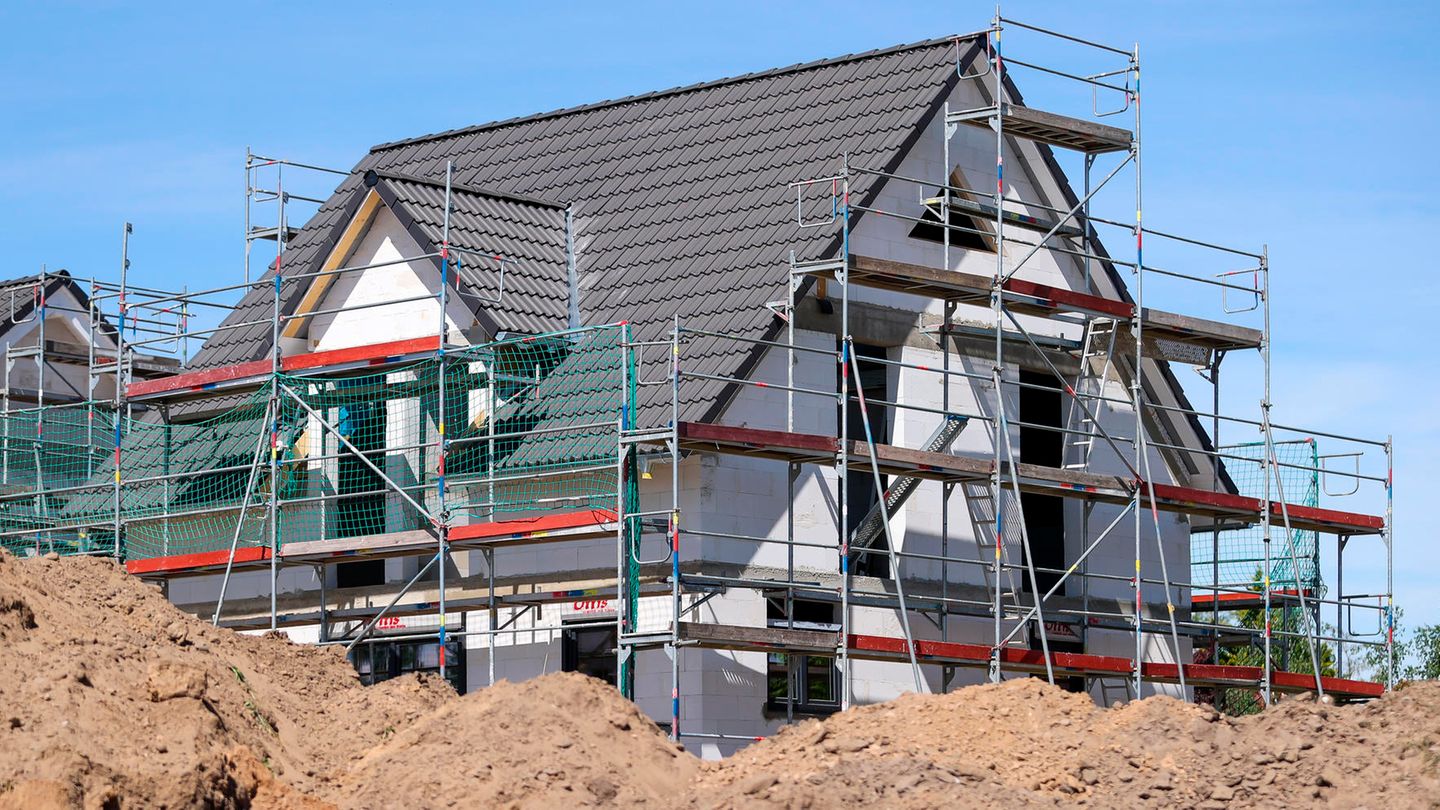Far too few apartments and homes are being built in Germany. But how does the industry get back on track? At the meeting in the Chancellery, the government presented plans to appease the industry.
More support for families when buying or building their own four walls, new tax advantages for construction projects and the departure from planned energy standards: With 14 projects, the traffic light coalition wants to ensure that more is built. “More affordable housing must be built in Germany,” emphasized Chancellor Olaf Scholz (SPD) on Monday at the government’s crisis meeting with the construction industry. The package will “change a lot and make a lot possible,” promised Construction Minister Klara Geywitz.
“With our new funding, more people will be able to buy a house, an existing one or a new one,” said the SPD politician. “By thinking more holistically about climate protection in the building sector, we will save more CO2, and by making it significantly easier to build new apartments, we will have more apartments and affordable rents in the medium term.” The real estate and construction industries reacted with “cautious optimism”.
Waiver of the EH40 standard
Among other things, the waiver of the EH40 energy saving standard for new buildings agreed in the coalition agreement for 2025 should have a major impact. Geywitz had already called for this in the past, and now Climate Minister Robert Habeck (Greens) also agreed to it. He explained: “The introduction of the Building Energy Act ensures that new buildings will have climate-friendly heating from 2024. That’s why I no longer think it is necessary to quickly introduce the new EH40 standard.”
EH40 means: A requirement of 40 percent of the energy of a comparable new building. The EH55 standard currently applies to new buildings. EH40 should further reduce the energy requirement for heating and thus also the emissions of greenhouse gases. But this makes building more complex and expensive.
This would come at a time when costs are already rising due to sharply increased building interest rates and expensive building materials. Everything together has led to fewer and fewer new residential construction projects being started. At the same time, affordable apartments are becoming increasingly difficult to find in major cities.
The federal government’s 14-point plan also includes a reform of the property support for families, which has recently been used only hesitantly. The income limit for a family with one child is to be increased from 60,000 to 90,000 euros; an additional 10,000 euros can be earned for each additional child.
Tax advantages for the purchase of houses in need of renovation
In the next two years, the federal government will also launch a program for the purchase of houses in need of renovation. At the same time, the conversion of empty offices and shops into new apartments should be supported. The money will come from the Climate and Transformation Fund, a special pot outside the federal budget.
For construction projects, there should be tax advantages through special depreciation rules, the so-called Afa. The “climate bonus”, which encourages homeowners to exchange old, fossil fuel heating systems for new, climate-friendly heating systems, is to be increased and also extended to housing companies and landlords.
The states should be able to structure property transfer tax more flexibly. The planned so-called residential non-profit organization is scheduled to start next year. Landlords who provide permanently affordable housing should receive tax advantages and support.
Positive signals from the construction industry
Scholz also described serial building as a key instrument. This means that once approved houses could be built in other districts without the need for complex new procedures. However, states and municipalities have to get involved.
“The traffic light clearly recognized the scope of the situation,” said the Central Association of the Construction Industry. The real estate association ZIA also expressed itself positively: “A new realism in climate protection and clear tax relief signals show that the discussions of the last few weeks have been worth it.” The main association of the German construction industry praised the package as “more extensive than expected”. It is now important that a more attractive interest reduction program is also examined.
The housing industry association GdW, which boycotted the meeting in the Chancellery, also saw a positive development. Unfortunately, nothing came of it for socially oriented housing companies. This means that these companies would not be able to use the new depreciation options at all. Among other things, the association called for a reduction in VAT from 19 to 7 percent for affordable housing and KfW loans at a reduced interest rate of one percent. Then affordable new building rents could be guaranteed again.
Environmental associations in particular were disappointed: “The traffic light package of measures for building and living is not a step towards a more socially just and ecological future, but rather a fiasco,” criticized the managing director of the Federation for the Environment and Nature Conservation (BUND), Antje von Broock. Saying goodbye to the eco-standard is completely unacceptable. “With the traffic light plans, we are sliding further towards climate catastrophe, and more and more people don’t know how they are going to pay their next heating bill.”
Source: Stern
I have been working in the news industry for over 6 years, first as a reporter and now as an editor. I have covered politics extensively, and my work has appeared in major newspapers and online news outlets around the world. In addition to my writing, I also contribute regularly to 24 Hours World.




